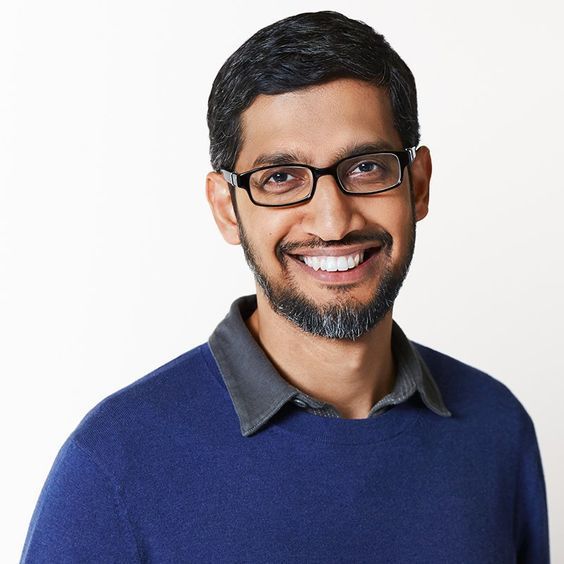Sundar Pichai: Leading Google & Alphabet into the Future of Technology
Sundar Pichai, an influential force in the technology industry, has a journey that is as inspiring as it is impressive. Born on June 10, 1972, in Madurai, Tamil Nadu, India, Pichai’s ascent to the helm of Alphabet Inc. and Google underscores his strategic vision, exceptional leadership, and dedication to technological innovation.
Educational Background
Pichai’s academic path laid a strong foundation for his future success. He earned a Bachelor’s degree in Metallurgical Engineering from the prestigious Indian Institute of Technology (IIT) Kharagpur, India. Recognizing his potential, he pursued further studies in the United States, obtaining an M.S. in Material Sciences and Engineering from Stanford University. Complementing his technical expertise, Pichai achieved an MBA from the Wharton School of the University of Pennsylvania, a development that honed his strategic and leadership skills.
Career Trajectory
Early Career
Sundar Pichai began his professional journey with roles in engineering and product management at Applied Materials. He then briefly explored the management consulting landscape with McKinsey & Company, gaining invaluable insights that would later inform his leadership approach at Google.
Google Career (2004-Present)
- 2004: Pichai embarked on his illustrious career at Google, starting as Vice President of Product Management.
- 2008: He led the development of Google Chrome, a project that transformed global web browsing.
- 2012: In recognition of his achievements, he became Senior Vice President of Chrome and Apps.
- 2013: Pichai expanded his responsibilities to oversee Android, further solidifying Google’s place in mobile technology.
- 2014: He was appointed Product Chief for Google's core products, emphasizing his integral role in shaping the company’s product strategies.
- August 10, 2015: Pichai’s leadership journey peaked when he was named CEO of Google.
- October 24, 2015: He officially assumed the role, embarking on a transformative leadership journey.
- July 2017: He joined Alphabet’s Board of Directors, expanding his influence across the parent company.
- December 3, 2019: Sundar Pichai succeeded Larry Page as CEO of Alphabet Inc., integrating leadership responsibilities across Google’s diverse suite of enterprises.
Key Achievements and Contributions
- Google Chrome: Pichai was pivotal in its development, securing a dominant 64.5% market share.
- Android: Under his watch, Android grew to become the world’s leading mobile operating system.
- Google Drive: He contributed significantly to its launch, aiding Google’s suite of cloud services.
- ChromeOS and Chromebook: Pichai spearheaded these innovations, revolutionizing personal computing in 2011.
- AI and Machine Learning: Recognizing future trends, Pichai aggressively directed Google’s investments into AI technologies.
Leadership Style
Sundar Pichai is lauded for his empathetic and inclusive leadership. Known for fostering innovation while balancing technical expertise with business acumen, his style emphasizes diversity, open communication, and a forward-thinking approach that encourages both individual and organizational growth.
Recent Developments
In 2025, Pichai continues to navigate Alphabet and Google through rapid technological changes, particularly in AI and quantum computing. His commitment to addressing global standards and regulatory challenges, especially regarding data privacy and antitrust matters, demonstrates his dedicated and proactive leadership.
Financial Impact
Alphabet’s market valuation surpassed $2 trillion in 2021, a milestone achieved under Pichai’s strategic leadership amid the growth surge during the COVID-19 pandemic. His financial acumen is reflected in his substantial compensation, highlighting the value placed on his leadership role. In 2022, Pichai’s total compensation reached $226 million, cementing his status among the world’s highest-paid executives.
Sundar Pichai’s leadership at Google and Alphabet exemplifies how strategic vision and a deep understanding of technology can drive success in complex, ever-evolving global markets. His contributions continue to shape the landscape of the tech industry, ensuring that both entities stay at the forefront of innovation.
